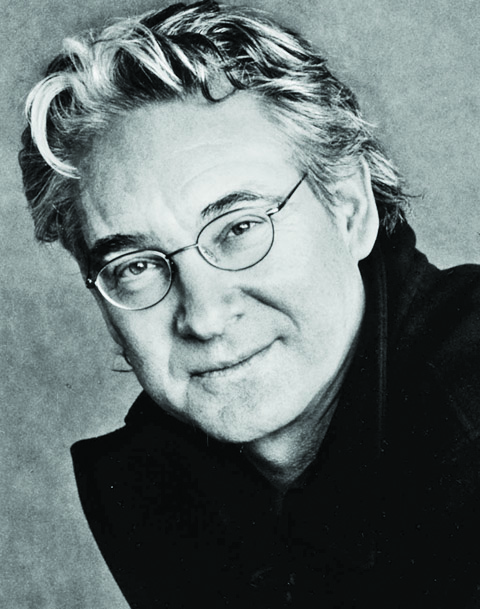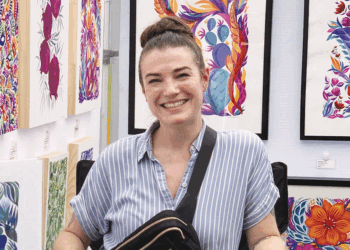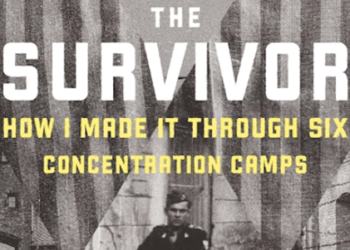A tragedy in Minneapolis led to formation of the Mental Health Education Project, which will hold its 10th anniversary conference on Nov. 7
By ERIN ELLIOTT BRYAN / Community News Editor
On June 12, 2000, Barbara Schneider was killed by Minneapolis police officers. Schneider, a Jewish woman living in Uptown, was described by friends as “extremely intelligent” and “culturally sophisticated,” had worked as an administrative assistant at the Jewish Community Relations Council, and was a member of Jewish Community Action (JCA).
But Schneider also struggled with a mental illness.
According to the AJW, on the day of her confrontation with police, it was Schneider’s apartment manager who called 911 and “requested a mental health crisis team to respond.” The Minneapolis Police Department did not have such a unit, so officers were dispatched to her home.
Schneider met them at the door with a knife in her hand. She later retreated to her bedroom and, when she refused police orders to drop the knife, was shot by two of the officers.
Harriet Meyers, who had known Schneider for 15 years as a therapist and friend, told the AJW at the time that she did not want to demonize the police.
“I want to help them to be able to deal with people like Barbara,” Meyers said. “That would be a gift to her, a gift that she would leave to the community.”
In fact, Schneider’s death did mobilize members of the general and Jewish communities to publicly address mental illness. The Barbara Schneider Foundation was formed to “eliminate the criminalization of people with ”¨mental illness through proactive training and education,” and Jewish organizations and individuals came together to form the Mental Health Education Project.
The Mental Health Education Project is now part of the Jewish Community Health Awareness Initiative (J-CHAI), a collaborative program of Jewish Family and Children’s Service of Minneapolis (JFCS) and Jewish Family Service of St. Paul (JFS).
It will sponsor the Twin Cities Jewish Community 10th Anniversary Conference on Mental Health, titled “Opening Doors, Minds, Hearts,” on Nov. 7 at Temple Israel in Minneapolis. The American Jewish World is a media sponsor of the event, which is free and open to the community.
Two sessions of workshops will cover more than 20 different topics — from family values, eating disorders and coping strategies to mental illnesses in teens and seniors, and Jewish ritual and wellness.
“For us, it represents our commitment to the wholeness of the community,” JFS Executive Director Rena Waxman told the AJW. “That the community is composed of the whole of its members and that we want to create circumstances in which people within themselves can be whole.”
This year’s keynote speaker will be Michael Greenberg, author of Hurry Down Sunshine: A Father’s Story of Love and Madness (Vintage). Greenberg, a native New Yorker, writes about his daughter Sally’s sudden psychotic break and how it affected those closest to her.
“What I really tried to create was that astonishment of someone as close to you as one could be going away,” Greenberg told the AJW. “It’s really a book written to those who are very close to mental illness without having it themselves and [discusses] what it does to them.”
Sally was diagnosed as bipolar, and Greenberg described her sudden onset as “bewildering.” To try to understand his daughter’s experience, Greenberg looked at the literature of mental illness — everything from Richard Burton’s The Anatomy of Melancholy in the 18th century to Sylvia Plath’s autobiographical novel, The Bell Jar.
“All of the really good books, all the resonant books, are written by people who have experienced mental illness themselves and have come out on the other side, in one way or another,” Greenberg said. “I felt that this was a missing story from the other side of the shore. Sally’s breakdown had a profound effect on me and those closest to her. It’s a very lonely experience…and I felt that I was a writer and I could tell this story. And I could tell this story in a certain kind of way that could offer a kind of companionship to people.”

Greenberg wrote his book with the support of his family, especially his daughter, who now manages her illness “with a great deal of will and effort and wisdom.”
On Nov. 6, the 10th Anniversary Celebration Dinner, held at the Airport Hilton in Bloomington, will honor Sen. Al and Franni Franken for the work they have done regarding mental health and related issues, and their commitment to keeping alive the legacy of Sen. Paul and Sheila Wellstone. The Frankens will be introduced by Mark Anderson, executive director of the Barbara Schneider Foundation and Wellstone’s former staff aide on mental health issues; and Sen. Franken will offer brief remarks.
Wellstone spoke at the first mental health conference on Nov. 4, 2001. (He was scheduled to speak again in 2002, but died in a plane crash 10 days before the conference.) The keynote speaker that year was Kathy Cronkite, daughter of Walter Cronkite, who has struggled with depression. That first conference attracted 524 attendees.
“We weren’t sure what kind of response we were going to get, knowing that there seemed to be people who, at that time at least, didn’t feel too free about opening up,” said Burt Garr, the former executive director of the St. Paul JCC, who was involved in planning the first mental health conference. “To our surprise, it was well received and continued to grow over the years.”
In conversations with Laurie Kramer, founder of the Mental Health Education Project and now the conference coordinator, Garr and the other organizers had identified a need for an open community discussion about mental illness.
“There seemed to be a number of people in the Twin Cities community that were having problems with mental illness and it was something that was kept silent, that people didn’t talk about, that there was a stigma attached to and people were ashamed of,” Garr said.
Jill Marks is a member of the conference’s planning committee and, like keynote speaker Greenberg, had a daughter who struggled with mental illness. Marks’ daughter, Jami, was 21 when she committed suicide in 1999, and most likely suffered from bipolar disorder.
Several months after her daughter’s death, Marks was approached by Kramer, who simply wanted to do something for the community to raise awareness about mental health issues.
“I’m definitely one of those people who, when there’s been a challenge in my life, use it as an opportunity to try to promote something positive, so I was thrilled,” Marks said.
Marks is a psychologist and has a family history of mental illness, but said she didn’t recognize the signs and symptoms her daughter exhibited.
“It’s not always evident in those we love,” she said. “And unless someone can share and express what they’re going through, we don’t always know. So that was just another reason to try and help people understand.”
The Jami Alanna Marks Tikkun Olam Fund at Temple Israel supports the mental health conference in addition to other projects.
“There’s still stigma. Although it’s changed radically in the 10 years since we’ve first started this, I think it’s changed a lot,” Marks said. “It gives people a place to come that I think they now have come to believe in, and feel safe and comfortable with… We’re all here together to learn and share and support each other.”
***
The Twin Cities Jewish Community 10th Anniversary Conference on Mental Health will take place 12:30 to 6 p.m. Sunday, Nov. 7 at Temple Israel, 2324 Emerson Ave. S., Minneapolis. The conference is free; to register, visit: www.jfcsmpls.org. Transportation can be arranged from the St. Paul JCC through JFS; call 651-698-0767.
The 10th Anniversary Celebration Dinner will take place 6:30 p.m. Saturday, Nov. 6 at the Airport Hilton, 3800 American Blvd. E., Bloomington. The event will include a discussion and book signing with conference keynoter Michael Greenberg and the premiere of a video remembering the life of Barbara Schneider. Tickets are $36; visit: www.jfcsmpls.org.
For information, contact Laurie Kramer at 952-417-2149.
For information on the Barbara Schneider Foundation, visit: www.thebarbaraschneiderfoundation.org.
(American Jewish World, 10.15.10)




















